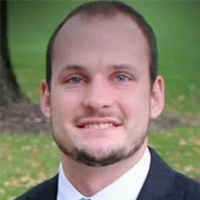 Crown Point Felony Lawyers, Indiana
Crown Point Felony Lawyers, Indiana
Sponsored Law Firm
-
 x
x

Click For More Info:
-
Stracci Law Group, PC
11890 Broadway Crown Point, IN 46307» view mapCriminal Defense, OWI & Personal Injury Law Respected. Resourceful. Relentless.
Paul maintains a strong rapport with his clients as well as with other legal professionals in the area. He is a relationship builder, who has built strong relationships.
800-928-0490
Not enough matches for Crown Point Felony lawyer.
Below are all Crown Point Criminal lawyers.
Sponsored Lawyers
1-10 of 16 matches
Criminal, Accident & Injury, White Collar Crime, DUI-DWI, Felony
Paul Stracci is a uniquely experienced criminal trial attorney who has had remarkable success in the courtroom. He successfully defended his first murder case 10 months out of law school, with the jury returning a not guilty verdict on all counts. Paul is a straight shooter and clients may rely upon his honesty, integrity, and willingness to tell the facts as they are. Paul maintains a strong rapport with his clients as well as with other legal professionals in the area. He is a relationship builder, who has built strong relationships with local officials, lawyers, and government agencies, all of which provide him with keen insight into and knowledge of the criminal justice system. Paul and his team handle a variety of criminal cases, including felony and misdemeanor cases in both state and federal courts. He specializes in defending drug distribution and conspiracy cases, criminal gang activity and firearms offenses, white collar and public corruption cases, healthcare fraud offenses, child pornography and sex cases, and other highly complex and often high profile criminal cases. In addition, Paul has had particular success in defending drunk driving criminal offenses. He is a long-time member of the National College for Drunk Driving Defense and has completed drunk-driving courses at the Harvard Law School. Paul has also completed the NHTSA Standardized Field Sobriety Testing Practitioner’s Course and the 12 Step Drug Recognition Expert Mini-Course. He has the knowledge and skills to often successfully challenge drunk driving breath tests and blood draws for intoxication. Lastly, the unique advantage that Paul has over other attorneys in the area is his highly regarded and talented team of lawyers, researchers, and other professionals who work together as a team and allow him to work on multiple high-profile cases with the dedication and resources of any firm in the northwest Indiana area.
(more)Business, Divorce & Family Law, Accident & Injury, Criminal, Estate
At Robbins and Seville, LLC, we specialize in providing 21st-century solutions to our clients' legal challenges. This includes utilizing cutting-edge software to reduce turnaround times and legal fees, applying advanced research tools, and leveraging project and portfolio management techniques to ensure that your case moves rapidly towards a successful outcome. Most importantly, attorneys at Robbins and Seville, LLC, are committed to maintaining communications with our clients and achieving the best results for you - not just the best outcome for your attorneys.
(more)


 Paul Stracci Crown Point, IN
Paul Stracci Crown Point, IN Practice AreasExpertise
Practice AreasExpertise


